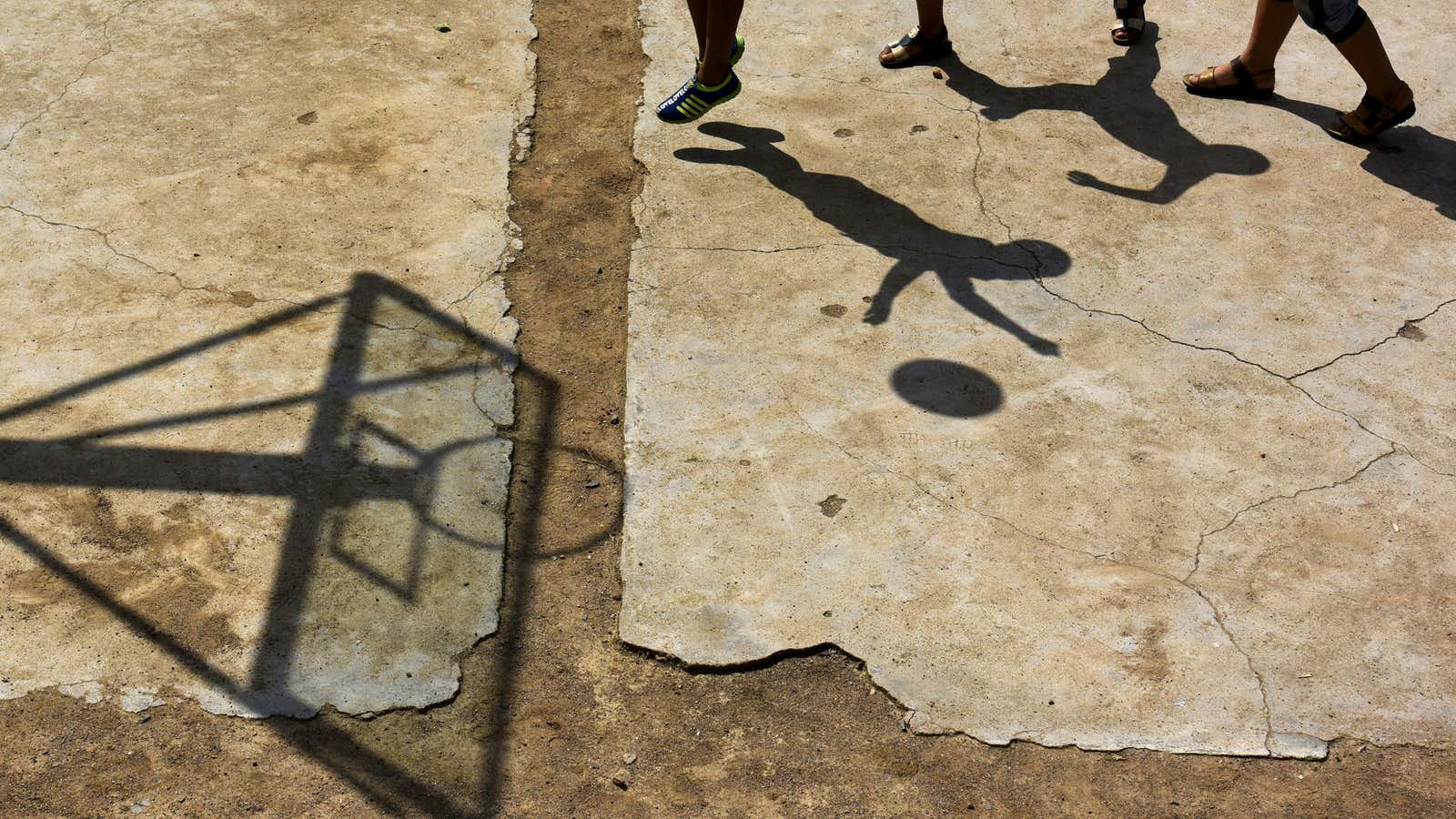In much of the world, psychoanalysis is a fading discipline, seen as better suited to popular culture than serious therapeutic practice. But in Argentina, the country with the highest number of psychologists per capita in the world, psychoanalysis is the go-to answer for all manner of woes. And, with significant clusters of university psychology departments focused on psychoanalysis for children, this traditional therapy is a standard weekly appointment for kids too.
Whether they wet the bed, have difficulty concentrating at school, or fight with their brothers, Argentinean children are frequently sent to Freudian or Lacanian psychoanalysis, where a psychologist analyzes their play and drawings in an effort to understand their unconscious and help resolve any difficulties.
Sex in children’s psychoanalysis
Freud believed that unconscious sexual desires drive our behavior, and so much of psychoanalysis focuses on identifying and talking through sexual thoughts. While such discussion is less explicit for children’s psychoanalysis, it’s still a key theme of the therapy.
Mariano Plotkin, a historian of psychoanalysis at Universidad Nacional de Tres de Febrero, says that he learned about the Oedipus Complex at the age of six from a frank conversation with his therapist (who, incidentally, was the mother of internationally renowned artist Guillermo Kuitca).
“When I went to psychoanalysis as a kid, my therapist would tell me, ‘You want to fuck your mother, you want to kill your father.’ And everything I did she would interpret that way. If I was playing with two cars, she’d say, ‘This car is your mother, this car is your father,’” Plotkin says. But this was back in 1968, he says and “nowadays they don’t exist like this.”
José Sahovaler, a psychologist and coordinator of the department for children and adolescents at Asociación Psicoanalítica Argentina (Psychoanalytical Association Argentina), has worked with patients as young as four. He says that he would never tell a child struggling with an Oedipus Complex that sex was at the root of his or her problem. Though much of psychoanalysis involves consciously identifying and addressing unconscious thoughts, he explains that there are some desires that are better left repressed.
“All of us have this kind of complex but children have to repress it, not to live it. They have to suppress their sexual feelings for their parents,” he says. “That is why we must be very careful with what you say to a child. It would be wrong, of course, to tell a patient they want to have sex with their mother just when these desires must be repressed.”
Hernan Scholten, a Buenos Aires psychologist and historian of psychoanalysis, often works with adolescents in their early teens and says he doesn’t look to the Oedipus Complex to explain behavioral problems. That said, sex is still a common topic of discussion for many of Scholten’s patients. For example, he worked with one adolescent whose mother was concerned that he showed no signs of sexuality. When Scholten walked in the park with the patient during a therapy session, the teenage boy froze at the sight of girls his age taking photos of themselves. Scholten mentioned this reaction to the mother as a sign of the patient’s sexuality and, later, the mother told Scholten that she suspected her son had started masturbating.
Though the notion of a mother discussing her son’s masturbating habits with a therapist might seem strange to some, it’s perfectly standard in Argentina. “It’s normal at that age to masturbate, parents are usually aware and talk to a psychoanalyst about it,” says Scholten.
Interpreting playtime
But while key psychoanalytical notions of sex and the unconscious still hold for children’s therapy, other traditional aspects of the discipline have faded out of practice. None of the psychologists I spoke to asked their young patients to lie on a couch, for example. Instead, they encourage patients to walk, draw, or play. Scholten often invites his patients to fire up a PlayStation game of their choosing. “We start talking about the game, and then conversation leads to family,” he says.
Virginia Ungar, a psychoanalyst specializing in children and adolescents, who was recently named the first female head of the Asociación Psicoanalítica Internacional (an organization founded by Freud and whose first president was Carl Jung), says a lot can be revealed through play. One young boy she saw recently, for example, would constantly crash his toy cars. That, she says, was likely reflecting the violence he was seeing at home as his parents went through a divorce. “We think children convey their emotions, anxieties and fantasies through play and we’re able to interpret their play in the same way we interpret dreams with adult patients,” she says.
At three to five years old, psychoanalysis can help with potty training, overcoming early phobias, or managing transitions such as starting kindergarten. As children get older, Sahovaler says psychoanalysis can help address all manner of parent/teacher complaints and mental health concerns, including bad behavior, sadness, jealousy, insomnia, and anorexia. Sahovaler argues that extensive psychoanalysis is far preferable to the US treatment of choice for children with social difficulties—medication.
“A sad child can express their sadness with hyperactivity and inability to sit still and pay attention in school, or by beating their peers,” he writes in an email. Psychoanalysis diagnoses and addresses the underlying causes of these types of behaviors. The problem with medicating kids to be “normal,” he says, is that the causes of their suffering often go ignored.
“[Psychoanalysis] undoubtedly takes time and effort (and money) but is much better that molding them, oppressing them to be ‘good guys,’” writes Sahovaler. “If a child feels unconscious guilt and an unconscious desire to attack his brother” then it’s necessary to uncover “these unconscious desires that fill him with guilt and pain.”
